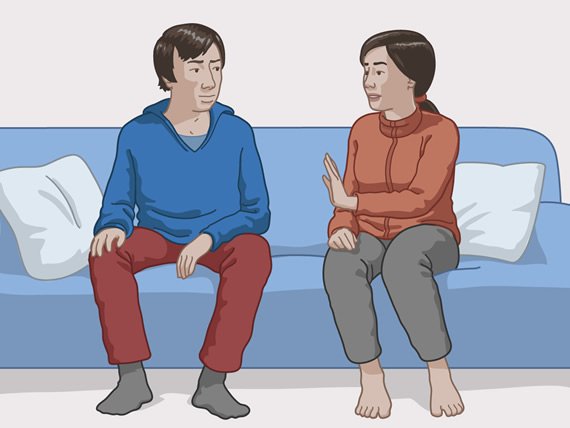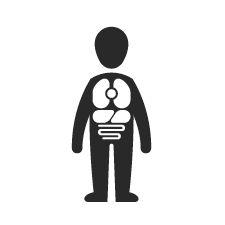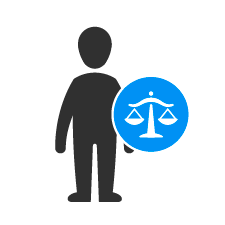Everyone has their own boundaries. Your boundaries are part of your personality. You have the right to have your boundaries respected. Someone who ignores your boundaries is disrespectful and thus hurts you as a person. If your boundaries are violated, you have the right to do something about it. The boundaries in a partnership can vary.
Something that is acceptable for your partner may be unacceptable for you. You can recognize when your partner crosses your boundaries when you feel uncomfortable with what happens. Your boundaries are crossed when someone is doing something to you against your will. It is not always easy to recognize where your own boundaries are and where the boundaries of others are. That is why it is important to talk about them. Tell other people where your limits are, and be sure to recognize the limits of others and not to disrespect them.
But there are things that very clearly disrespect boundaries. These include, for example:
- being insulted or insulting someone,
- being forced to have sexual intercourse or forcing someone to have sexual intercourse,
- demanding certain types of sex which you do not or your partner does not like,
- being hit by your partner or hitting your partner.
These are all examples of violence and do not have to be tolerated. If someone crosses your boundaries, you can get help by going to the police station or by contacting a counselling centre.
It is important that both partners talk to each other. This can help them to respect the other's limits. Both should agree on what can and cannot happen. No one is allowed to use physical or emotional violence to force the other to do something. Both should try to be equal partners to each other. One person should not have power over another person. Both partners should treat each other attentively and respectfully.
Saying no
If you feel that your boundaries have been crossed, then say no.
Sometimes you clearly feel that you do not want something, but you cannot explain why. That's ok. You do not need to justify your decision. A "no" is enough. Your partner must respect your decision.
Saying "no" can be difficult, especially if you have strong feelings for your partner. You may be afraid to lose her / him. But your no is important and right. It clearly shows your partner where your boundaries are.
Do not make any commitments to your partner if you do not actually want to. Say "no" clearly and decisively. When doing so, look your partner in the eye as much as possible. If you can, tell her / him why you do not want something. Repeat your message when necessary. You do not need to feel guilty. If your partner does not accept the "no", get help. Find a person who is close to you that you can trust. Or seek professional help at a counselling centre.
If your partner repeatedly forces you to do things that you do not want to do, it is worth asking yourself if he / she is really the right partner for you.
Sexualized violence
If someone uses violence or the threat of violence to get you to do something that you do not want, this is called coercion. Coercion crosses your boundaries.
Sexualized violence is when someone attacks you with words or actions that are meant sexually and intends to humiliate you with them. This person disrespects your boundaries in order to feel more powerful.
Sexualized violence has many forms. It can take place, for example, in the form of insults through sexual words, unwanted contact in intimate areas or even forced sexual activities.
Sexualized violence is forbidden by law, just like any other violence. It is considered a criminal offense and is pursued by the police when it is reported.
Sexualized violence can be exercised by a partner, family members, relatives, acquaintances or strangers.
Getting help
Do not feel guilty and do not feel ashamed if you have experienced sexualized violence. There are many people affected by it. Get help:
- Talk to a person you trust.
- Contact a crisis centre, a centre for victims of sexual assault, or centre for victims of incest and sexual assault.
- Talk to someone from a counselling centre. You can contact DIXI, which offers support to victims of rape.
- Also talk to someone at the counselling centre about the possibility of reporting the incident to the police. The police can help you protect yourself from further violence.










